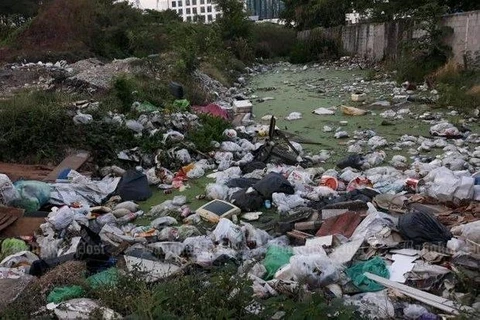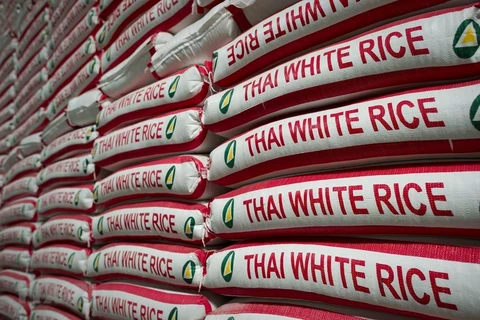Bangkok (VNA) – The Thai Government has tightened its grip on the movement of eight products on the new price control list to curb smuggling from neighbouring countries, shore up domestic prices and prevent a spread of crop diseases.
Local media reported on July 18 that these products are garlic in 52 provinces; onions in 52 provinces; paddy and milled rice in 20 provinces; milled rice in state stocks discharged for industrial use in all provinces; corn in seven provinces; palm oil in 31 provinces; mature coconuts, coconut meat and dried coconut meat in six provinces; and fresh cassava and tapioca chips in 12 provinces.
Whichai Phochanakij, director-general of Thailand’s Internal Trade Department, said the movement controls are for a variety of reasons.
For onions and palm oil, the controls are meant to stem a drastic fall after a flood of imports and onion smuggled from neighbouring countries. For tapioca and tapioca products, the government aims to tackle the widespread cassava mosaic virus.
The cabinet approved on July 2 the new price control list with the number of product and service items unchanged, 52, including 46 goods and six services.
The price control list covers essential items for daily use such as food, consumer products, farm-related products, construction materials, paper, petroleum and medicines.
Businesses making or selling the listed products are required to inform the authorities of their production costs and seek approval before any price increases. Meanwhile, private hospitals and clinics need to inform the Internal Trade Department at least 15 days in advance if they want to hike their prices, Whichai said. -VNA
Local media reported on July 18 that these products are garlic in 52 provinces; onions in 52 provinces; paddy and milled rice in 20 provinces; milled rice in state stocks discharged for industrial use in all provinces; corn in seven provinces; palm oil in 31 provinces; mature coconuts, coconut meat and dried coconut meat in six provinces; and fresh cassava and tapioca chips in 12 provinces.
Whichai Phochanakij, director-general of Thailand’s Internal Trade Department, said the movement controls are for a variety of reasons.
For onions and palm oil, the controls are meant to stem a drastic fall after a flood of imports and onion smuggled from neighbouring countries. For tapioca and tapioca products, the government aims to tackle the widespread cassava mosaic virus.
The cabinet approved on July 2 the new price control list with the number of product and service items unchanged, 52, including 46 goods and six services.
The price control list covers essential items for daily use such as food, consumer products, farm-related products, construction materials, paper, petroleum and medicines.
Businesses making or selling the listed products are required to inform the authorities of their production costs and seek approval before any price increases. Meanwhile, private hospitals and clinics need to inform the Internal Trade Department at least 15 days in advance if they want to hike their prices, Whichai said. -VNA
VNA
























